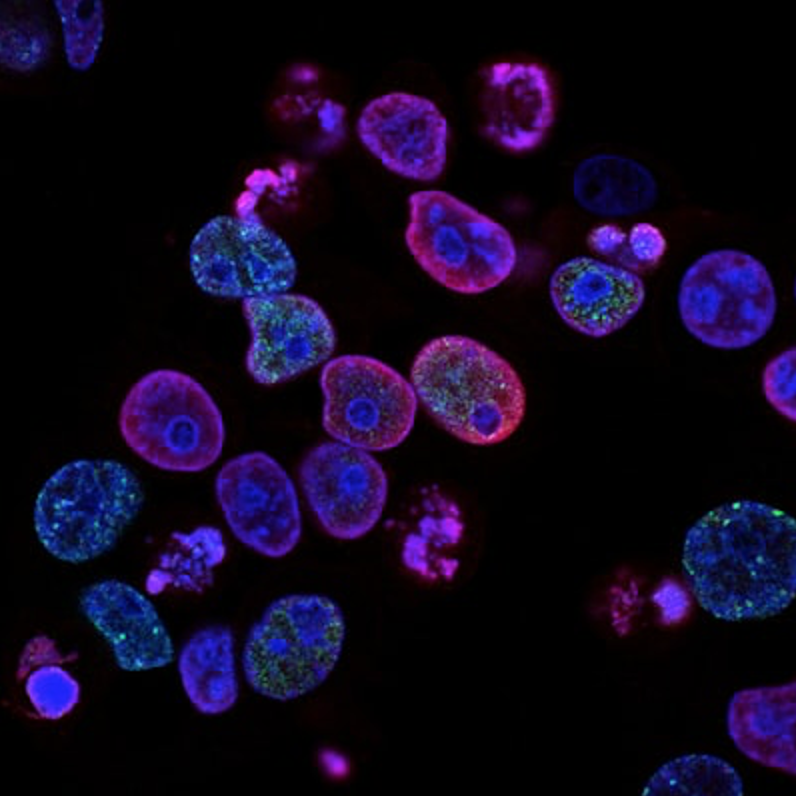Exploring the Wonders of Fasting Benefits

Key Highlights
- Intermittent fasting is an eating pattern that cycles between periods of eating and periods of fasting
- It has numerous health benefits including weight loss, improved heart health, reduced inflammation, and enhanced brain function
- Intermittent fasting can promote fat burning, increase insulin sensitivity, and reduce the risk of type 2 diabetes
- It may also help prevent cancer, improve longevity, and protect against neurodegenerative like Alzheimer’s
- Starting intermittent fasting safely and managing hunger are important for success
- FAQs: Intermittent fasting can be personalized to fit any lifestyle, the fasting period needed to see benefits may vary, and fasting can affect metabolism and weight loss
Introduction
Intermittent fasting is an eating pattern that has gained popularity in recent years due to its potential health benefits. It involves cycling between periods of eating and periods of fasting for a specific amount of time. There are different methods of intermittent fasting, such as the 16:8 and 5:2 methods, which determine the length and frequency of the fasting periods.
Numerous studies have shown that intermittent fasting has powerful benefits for the body and brain. It can promote weight loss, improve heart health, reduce inflammation, enhance brain function, and even potentially prevent certain diseases like cancer and Alzheimer’s.
One of the key mechanisms behind the benefits of intermittent fasting is the changes it induces in hormones, cells, and genes. When a person fasts, their insulin levels drop, promoting fat burning. The level of human growth hormone (HGH) in the blood may also increase, playing an important role in growth and repair, metabolism, weight loss, muscle strength and exercise performance. Fasting also triggers important cellular repair processes and beneficial changes in gene expression.
In addition to these cellular and molecular changes, intermittent fasting has been shown to have positive effects on weight loss, insulin sensitivity, blood sugar control, and heart health. It can also improve brain function, protect against neurodegenerative diseases, and potentially increase longevity.
If you’re considering trying intermittent fasting, it’s important to start safely and manage hunger while maintaining a balanced and nutritious eating plan.
Understanding Intermittent Fasting: The Basics

Intermittent fasting is an eating pattern characterized by alternating periods of eating and fasting. It has gained popularity for its potential health benefits, including weight loss, improved heart health, and reduced inflammation.
There are different types of intermittent fasting, such as the 16:8 method, where you fast for 16 hours and eat within an 8-hour window, and the 5:2 method, where you eat normally for 5 days and restrict calories for 2 days.
By following these eating patterns, intermittent fasting can optimize certain physiological processes in the body, leading to improved overall health and well-being.
What is Intermittent Fasting benefits?

Intermittent fasting is an eating pattern that involves cycling between periods of eating and fasting. It does not restrict what you eat, but rather focuses on when you eat.
There are several methods of intermittent fasting, but the most common ones include the 16:8 method and the 5:2 method. With the 16:8 method, you fast for 16 hours and eat within an 8-hour window each day, limiting the hours of the day when you eat. The 5:2 method involves eating normally for 5 days and restricting calories to 500-600 per day for 2 days. By limiting the hours of the day when you eat, you can build muscle tone and improve your health.
During the fasting periods, you consume little to no calories, allowing your body to enter a state where it can burn stored fat for energy. This can result in weight loss and other health benefits.
Intermittent fasting is an adaptable eating pattern that can be personalized to fit any lifestyle. It provides flexibility and can be a sustainable approach to maintaining a healthy weight and promoting overall well-being.
Different Methods of Intermittent Fasting

Intermittent fasting can be practiced using various methods, each with its own approach to fasting and eating. Some of the most popular methods include:
- 16:8 method: This involves fasting for 16 hours and consuming all calories within an 8-hour window each day.
- 5:2 method: With this method, eat normally for 5 days and restrict calorie intake to 500-600 calories for 2 non-consecutive days.
- Alternate-day fasting: This method involves alternating between fasting days, where you consume very few calories or none at all, and regular eating days.
- Eat-stop-eat: This method involves fasting for 24 hours once or twice a week.
Regardless of the method chosen, intermittent fasting focuses on creating periods of fasting and eating. The specific length and frequency of the fasting periods can be adjusted to suit individual preferences and goals.
During the periods of eating, it is important to focus on consuming nutritious, whole foods to support overall health and well-being.
The Science Behind Fasting

Intermittent fasting has profound effects on the body at a cellular level. When you fast, several changes occur that can promote cellular repair, regulate hormone levels, and influence gene expression.
Fasting triggers cellular repair processes, such as autophagy, where your cells break down and recycle old or damaged parts. This process helps remove waste material and toxins from your cells, promoting their overall health and function.
Fasting also affects hormone levels, such as insulin and human growth hormone (HGH). Insulin levels drop, allowing your body to access stored fat for energy. HGH levels increase, promoting fat burning and muscle gain.
Furthermore, fasting can cause beneficial changes in gene expression, influencing longevity and disease protection. These changes can have a positive impact on overall health and well-being.
How Fasting Affects Your Cells and Hormones

When you fast, your body undergoes various changes at the cellular and hormonal level. These changes play a crucial role in the health benefits associated with fasting.
One of the notable changes is the increase in human growth hormone (HGH) levels. HGH is responsible for promoting fat burning and muscle gain, among other benefits. By increasing HGH levels, fasting can enhance your body’s ability to burn fat and build lean muscle.
Fasting also leads to a significant drop in insulin levels. Insulin is a hormone that regulates blood sugar levels and promotes fat storage. When insulin levels are low, your body is more likely to burn stored fat for energy, leading to weight loss.
By affecting hormone levels, fasting helps optimize metabolic processes in your body, promoting overall health and well-being.
The Role of Fasting in Cellular Repair Processes
One of the remarkable benefits of fasting is its role in cellular repair processes. When you fast, your body activates a metabolic pathway called autophagy, which removes waste material from cells. Autophagy is a cellular waste removal process that breaks down and metabolizes dysfunctional or broken proteins that accumulate over time. This process helps to keep your cells healthy and functioning optimally in the fasting state. Fasting also reduces oxidative stress in the body, which is a key factor in aging and many chronic diseases. Additionally, fasting can lead to beneficial changes in gene expression, promoting longevity and protection against disease. These cellular repair processes highlight the importance of fasting for maintaining overall health and preventing age-related diseases.
Health Benefits of Intermittent Fasting
Intermittent fasting offers a range of health benefits that go beyond just weight loss. It can improve heart health by reducing blood pressure, cholesterol levels, and triglycerides. Fasting also helps to lower blood sugar levels and improve insulin sensitivity, reducing the risk of type 2 diabetes. Additionally, intermittent fasting has been shown to enhance brain function and protect against Alzheimer’s disease. It may also have potential benefits for cancer prevention and anti-aging. The significant differences in health markers between intermittent fasting and traditional calorie restriction diets make it a powerful tool for improving overall health and well-being.
Weight Loss and Body Fat Reduction
One of the main reasons people try intermittent fasting is for weight loss. Intermittent fasting can help you lose weight and reduce body fat by reducing the number of meals you eat. Unless you compensate by overeating during the other meals, you’ll end up consuming fewer calories overall. Fasting also enhances hormone function to promote weight loss and decrease body weight. It lowers insulin levels, increases human growth hormone (HGH) levels, and elevates levels of norepinephrine, a hormone that promotes fat breakdown. This combination of effects makes it easier for your body to use fat for energy and leads to a reduction in body fat. Short-term fasting can also boost your metabolism, helping you burn more calories.
Improvement in Insulin Sensitivity and Reduction of Type 2 Diabetes Risk
Intermittent fasting has shown significant improvements in insulin sensitivity, making it an effective strategy for reducing the risk of type 2 diabetes. Insulin resistance, a condition where your body becomes less responsive to insulin, is a major risk factor for type 2 diabetes. Fasting helps to lower insulin levels in the blood, allowing your body to become more sensitive to insulin. This improved insulin sensitivity leads to better blood sugar control and reduced risk of developing type 2 diabetes. Intermittent fasting can also help regulate blood sugar levels, supporting blood sugar management and decreasing the risk of diabetes.
Enhancing Heart Health
Intermittent fasting has been shown to have numerous benefits for heart health. It can help lower blood pressure, a major risk factor for cardiovascular disease. Fasting has also been found to improve cholesterol levels by reducing total cholesterol and LDL (bad) cholesterol levels, as well as triglyceride levels. These improvements in heart health markers contribute to a reduced risk of heart disease. By incorporating intermittent fasting into your lifestyle, you can enhance your heart health and potentially prevent heart-related complications.
Fasting and Mental Health
In addition to its physical benefits, intermittent fasting can also have positive effects on mental health. Fasting has been shown to improve brain function and cognitive health. Animal research suggests that intermittent fasting may increase the growth of new nerve cells, which can have benefits for brain function. It also increases levels of brain-derived neurotrophic factor (BDNF), a hormone involved in brain health. Furthermore, fasting has the potential to protect against Alzheimer’s disease and other neurodegenerative diseases by reducing inflammation and oxidative stress in the brain. These findings highlight the importance of fasting for maintaining optimal brain health.
Intermittent fasting has been shown to have a positive impact on brain function and cognitive health. Animal studies have demonstrated that fasting can increase the growth of new nerve cells in the brain, which can improve brain function. Fasting also increases the levels of brain-derived neurotrophic factor (BDNF), a protein that plays a crucial role in neuronal growth, survival, and plasticity. BDNF has been linked to improved cognitive function and a reduced risk of neurological disorders. Additionally, fasting helps to reduce inflammation and oxidative stress in the brain, which are key contributors to cognitive decline. These findings suggest that incorporating intermittent fasting into your lifestyle can have significant benefits for brain health and cognitive function.
Fasting and Its Potential to Prevent Alzheimer’s Disease
Research suggests that intermittent fasting may have the potential to prevent or delay the onset of Alzheimer’s disease. Animal studies have shown that fasting can reduce the accumulation of beta-amyloid plaques, a hallmark of Alzheimer’s disease. Fasting also reduces inflammation and oxidative stress in the brain, which are known to contribute to the development and progression of Alzheimer’s disease. Additionally, fasting increases the production of brain-derived neurotrophic factor (BDNF), a protein that plays a crucial role in brain health and cognitive function. These findings highlight the potential of intermittent fasting as a non-pharmacological approach to protect against Alzheimer’s disease and maintain cognitive health. However, more studies are needed to evaluate the effects of fasting on brain function in humans, specifically in relation to Alzheimer’s disease.
Additional Health Advantages
In addition to the previously mentioned benefits, intermittent fasting has several other health advantages. It has the potential to prevent cancer by reducing the risk factors associated with the disease. Fasting also has anti-aging effects as it reduces oxidative stress and inflammation, which are both key contributors to aging process. Furthermore, intermittent fasting has been shown to extend life span in animal studies, suggesting that it may promote longevity. These additional health advantages make intermittent fasting a compelling approach to improve overall human health and well-being.
Potential Role in Cancer Prevention
Intermittent fasting has shown promise in cancer prevention. Fasting can reduce the risk factors associated with cancer development, such as obesity and insulin resistance. By promoting weight loss and improving insulin sensitivity, intermittent fasting creates an environment that is less conducive to cancer growth. Animal studies have also indicated that fasting may delay the onset of tumors and reduce the side effects of chemotherapy. However, more research is needed to determine the specific mechanisms by which fasting affects cancer prevention in humans. Incorporating intermittent fasting into your lifestyle may have significant beneficial effects for reducing the risk of cancer and improving overall health.
Anti-aging Effects and Longevity
Intermittent fasting has been associated with anti-aging effects and increased longevity. Fasting reduces oxidative stress and inflammation, two key factors in the aging process. By reducing these harmful processes, fasting may help slow down the aging of cells and tissues. Animal studies have shown that fasting can extend lifespan in various organisms, including mice and fruit flies. Additionally, a 2021 study found that fasting can increase the diversity of helpful bacteria in the gut microbiome, potentially extending longevity. While the effects of fasting on human lifespan are still being studied, the potential for increased longevity is an intriguing aspect of intermittent fasting. By incorporating intermittent fasting into your lifestyle, you may be able to reap the anti-aging benefits and potentially live a longer, healthier life.
Practical Tips for Starting Intermittent Fasting
If you’re interested in starting intermittent fasting, it’s important to begin slowly and gradually increase the fasting period. Start with a shorter fasting window, such as 12 hours, and gradually lengthen it over time. Remember to stay hydrated during the fasting period and break your fast with nutritious meals. It’s also important to listen to your body and adjust your eating plan accordingly. If you have any underlying health problems or concerns, it’s always best to consult with a healthcare provider before starting intermittent fasting. By following these practical tips, you can safely and effectively incorporate intermittent fasting into your lifestyle.
How to Begin Intermittent Fasting Safely
When starting intermittent fasting, it’s important to do so safely and gradually. Begin by selecting an intermittent fasting method that suits your lifestyle, such as the 16:8 method or the 5:2 method. Start with a shorter fasting window, such as 12 hours, and gradually increase the fasting period over time. Make sure to stay hydrated during the fasting period and break your fast with nutritious meals. It’s also crucial to listen to your body and adjust your eating plan as needed. If you have any underlying health conditions or concerns, it’s advisable to consult with a healthcare provider before starting intermittent fasting, especially if you are considering more extreme types of fasting such as water fasting or juice fasting. They can provide personalized guidance and ensure that intermittent fasting is safe and appropriate for you.
Managing Hunger and Maintaining Nutritional Balance
Managing hunger and maintaining nutritional balance are key aspects of successful intermittent fasting. During the eating window, focus on consuming nutrient-dense foods that provide essential vitamins, minerals, and macronutrients. Incorporate whole grains, lean proteins, healthy fats, and plenty of fruits and vegetables into your meals, following the principles of the Mediterranean diet. It’s also important to stay hydrated throughout the day by drinking water and other non-caloric beverages. To manage hunger during the fasting period, try drinking herbal tea or black coffee, both of which can help suppress appetite. Following a Mediterranean-style eating plan, rich in plant-based foods, healthy fats, and lean proteins, can also support nutritional balance and overall health during intermittent fasting.
Conclusion
In conclusion, exploring the wonders of fasting benefits unveils a plethora of advantages for both physical and mental well-being. From weight loss and improved heart health to potential cancer prevention and anti-aging effects, intermittent fasting offers a holistic approach to health management. Understanding the science behind fasting, including its impact on cellular repair processes and brain function, empowers individuals to embark on a journey towards a healthier lifestyle. By incorporating practical tips for starting intermittent fasting safely and addressing common questions, individuals can harness the benefits of fasting while ensuring nutritional balance and hunger management. Embracing intermittent fasting not only enhances physical health but also contributes to mental clarity and overall well-being.
How Long Should I Fast to See Benefits?
The duration of the fasting period can vary depending on the individual and their goals. While some benefits of intermittent fasting can be seen with shorter fasting periods, such as 12 hours, longer fasting periods, such as 16 hours or more, may yield more significant results. It’s important to experiment and find a fasting period that works best for you and your body. Remember that the timing of the fasting period is crucial, and consistency is key to experiencing the potential benefits of intermittent fasting.
Can Intermittent Fasting Fit Into Any Lifestyle?
Yes, intermittent fasting can be adapted to fit into any lifestyle. It offers flexibility in terms of choosing a fasting window that works best for you. Whether you prefer to fast in the morning, afternoon, or evening, intermittent fasting can be customized to suit your schedule and preferences. It’s important to find an eating plan and fasting pattern that align with your lifestyle to ensure long-term adherence and success.
How does fasting affect metabolism and weight loss?
Fasting can have a significant impact on metabolism and weight loss. It can help boost metabolism and promote fat loss by increasing the breakdown of body fat and making it easier for the body to use fat for energy. Fasting also affects lipid metabolism, leading to improvements in blood lipid levels and overall body composition.
What are the potential health benefits of fasting?
Fasting has a range of potential health benefits, including weight loss, improved heart health, reduced risk of chronic diseases like type 2 diabetes and cancer, and enhanced brain function. A systematic review of studies has shown that intermittent fasting can have positive effects on various health markers and risk factors.
https://www.ncbi.nlm.nih.gov/pmc/articles/PMC4960941
https://pubmed.ncbi.nlm.nih.gov/36950759
https://order.store.mayoclinic.com/hl/HLFREEB
https://www.sciencedirect.com/science/article/pii/S1550413118302535
https://academic.oup.com/ajcn/article/102/2/464/4564588
https://jamanetwork.com/journals/jamainternalmedicine/fullarticle/2623528
